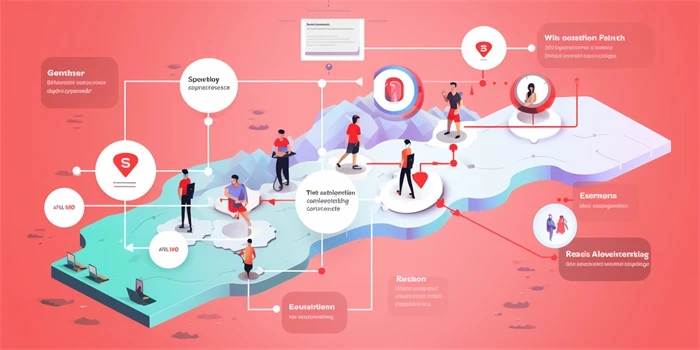Artificial Intelligence (AI) has made significant advancements in various industries, and healthcare is no exception. With the ability to analyze vast amounts of data, AI is revolutionizing the medical field, contributing to improved patient care, more accurate diagnoses, and streamlined medical processes. In this article, we will explore the various ways in which AI is transforming healthcare.

1. Medical Imaging and Diagnosis
AI has greatly enhanced medical imaging techniques such as MRI, CT scans, and X-rays. Deep learning algorithms can quickly and accurately detect patterns and anomalies in these images, aiding radiologists in diagnosing diseases like cancer, fractures, and cardiovascular conditions. By improving the accuracy of diagnoses, AI can potentially reduce misdiagnosis rates and enable earlier detection of diseases.
In addition to image analysis, AI-powered diagnostic tools like IBM’s Watson are being utilized to analyze patient medical records, symptoms, and medical literature to provide clinicians with insights and recommendations for appropriate treatment plans.
2. Robotics in Surgery
AI-powered robots are transforming the field of surgery. Robotic surgical systems, such as the da Vinci Surgical System, assist surgeons in performing complex procedures with precision and minimal invasiveness. By combining the surgeon’s expertise with AI algorithms, these robots can improve surgical outcomes, reduce surgical complications, and shorten recovery times for patients.
3. Personalized Medicine
AI enables personalized medicine by analyzing a patient’s genetic data and medical history to determine the most effective treatment options. Machine learning algorithms can identify patterns and correlations within a large dataset, allowing physicians to tailor treatment plans to individual patients. This approach has the potential to improve outcomes, minimize adverse reactions, and optimize drug therapies based on a patient’s unique characteristics.
4. Drug Discovery and Development
AI algorithms are being used to accelerate drug discovery and development processes. By analyzing vast amounts of biological data and predicting the effectiveness of different compounds, AI can significantly reduce the time and cost required to bring new drugs to market. This has the potential to revolutionize the pharmaceutical industry and provide faster access to life-saving medications.
Companies like BenevolentAI and Atomwise are utilizing AI to identify potential drug targets and repurpose existing drugs for new applications, expanding the possibilities for innovative therapies.
5. Virtual Assistants and Chatbots
AI-powered virtual assistants and chatbots are transforming the way patients interact with healthcare providers. These tools can provide quick responses to common medical questions, schedule appointments, and even monitor patient vitals remotely. By automating routine tasks and providing round-the-clock support, virtual assistants enhance patient experience while reducing administrative burdens on medical staff.
6. Disease Prediction and Prevention
AI algorithms can analyze large healthcare datasets, including electronic health records and environmental data, to predict disease outbreaks and identify high-risk individuals. This enables healthcare providers to allocate resources effectively, implement preventive measures, and intervene early to reduce the impact of diseases.
7. Mental Health Support
AI-powered mental health applications are gaining traction in the field of psychiatry. Chatbots and virtual therapists provide accessible and confidential support to individuals suffering from mental health disorders. These tools can be used for early screening, monitoring symptoms, and delivering therapy interventions, supplementing traditional psychiatric care.
8. Compliance Monitoring and Fraud Detection
AI can assist healthcare organizations in ensuring compliance with regulations and detecting fraudulent activities. Machine learning algorithms analyze vast amounts of data to identify patterns indicative of fraud, such as billing anomalies or unusual usage of healthcare resources. By detecting fraud early, AI helps protect patients and reduce healthcare costs.
Overall, AI’s integration into healthcare promises to revolutionize the medical field, improving patient outcomes, optimizing treatment plans, and enhancing the overall healthcare experience. Embracing AI’s potential and leveraging its capabilities will inevitably shape the future of healthcare.
Frequently Asked Questions
Q: Can AI completely replace doctors and healthcare professionals?
A: While AI provides valuable assistance and enhances medical processes, it is not intended to replace healthcare professionals. AI serves as a tool to augment human expertise, aiding in diagnosis, treatment planning, and decision-making, but it cannot replicate the experience, empathy, and clinical judgment of a healthcare professional.
Q: Is AI likely to make healthcare more expensive?
A: In the long run, AI has the potential to reduce healthcare costs by improving efficiency, reducing errors, and optimizing treatment plans. However, the initial investment and development costs associated with implementing AI technologies may lead to some short-term increase in expenses.
Q: What are the ethical concerns related to AI in healthcare?
A: Ethical concerns surrounding AI in healthcare include data privacy, algorithm bias, and the accountability of AI systems in making critical medical decisions. It is crucial to establish transparent regulations and ethical guidelines to ensure responsible and unbiased use of AI in healthcare.
References:
1. Rajkomar, A., Dean, J., & Kohane, I. (2019). Machine learning in medicine. New England Journal of Medicine, 380(14), 1347-1358.
2. Topol, E. J. (2019). High-performance medicine: the convergence of human and artificial intelligence. Nature Medicine, 25(1), 44-56.
3. Sagar, M., & Tan, C. (2018). Artificial intelligence in healthcare. In Internet of Things and Big Data Analytics Toward Next-Generation Intelligence (pp. 275-291). Springer, Singapore.








